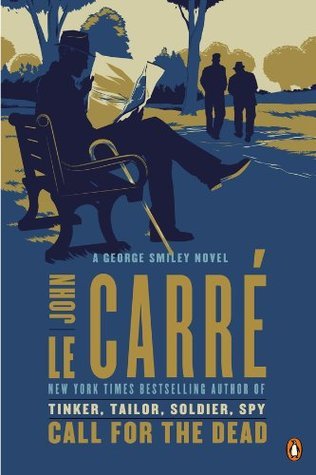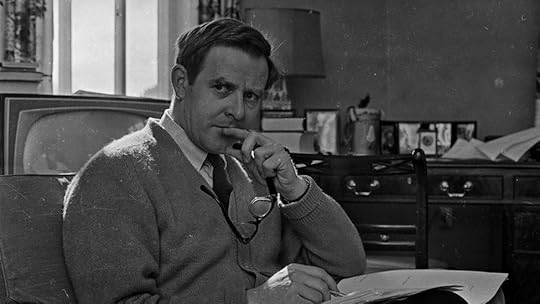What do you think?
Rate this book


157 pages, Kindle Edition
First published January 1, 1961
Short, fat, and of a quiet disposition, he appeared to spend a lot of money on really bad clothes, which hung about his squat frame like skin on a shrunken toad. Sawley, in fact, declared at [Smiley's] wedding that "[Ann] Sercomb was mated to a bullfrog in a sou’wester." And Smiley, unaware of this description, had waddled down the aisle in search of the kiss that would turn him into a Prince.
It dawned on [Smiley] gradually that he had entered middle-age without ever being young, and that he was, in the nicest possible way, "on the shelf".
"We seem to be at cross-purposes," [Maston] said. "I send you down to discover why Fennan shot himself. You come back and say he didn’t. We’re not policemen, Smiley."
No. I sometimes wonder what we are.
He knew how intelligent men could be broken by the stupidity of their superiors, how weeks of patient work night and day could be cast aside by such a man.

"take your hands off me! Do you think I'm yours because I don't belong to them? Go away! Go away and kill Freitag and Dieter, keep the game alive, Mr Smiley. But don't think I'm on your side, d'you hear? Because I'm the wandering Jewess, the no-man's land, the battlefield for your toy soldiers. You can kick me and trample on me, see, but never, never touch me, never tell me you're sorry, d'you hear? Now get out! Go away and kill"
“Short, fat and of a quiet disposition, he appeared to spend a lot of money on really bad clothes, which hung about his squat frame like skin on a shrunken toad.”